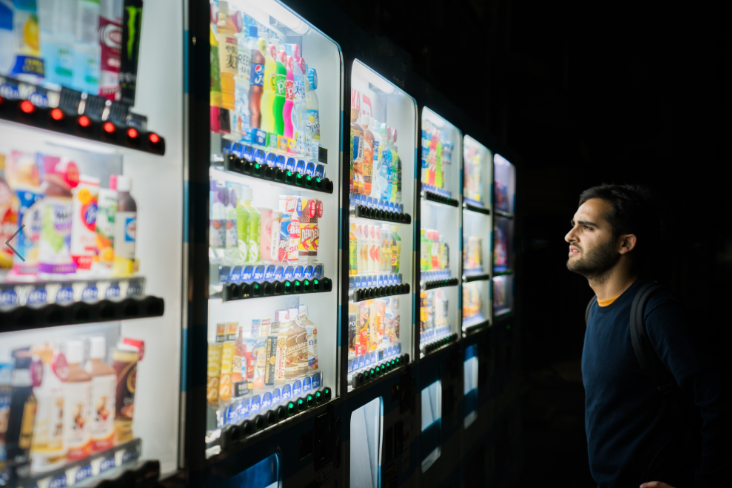It used to be that my wife would save her most complex and difficult questions for me until after 8pm when our kids are in bed and we finally have 2 minutes to talk.
As an example, last week she asked me, “Honey, which type of cereal do you want next week when I get groceries?”
Can you believe the audacity?
The sheer weight of the choice was crushing. What was she thinking asking me that within 30 seconds of me sitting down on the couch after a 15-hour day?
Apparently she had forgotten the stern warning our premarital counselor gave us—“I recommend you never have difficult conversations at the end of the day!”
All joking aside, selecting just the right cereal for the week ahead is not an unreasonable question, but trying to do so at the wrong time can feel like solving a quantum physics problem.
Today’s BIG IDEA—Research shows that the quality of our decisions generally gets worse as we make more decisions throughout the day. Today we will discuss strategies for how you can improve the quality of your choices.
I used to wonder why I felt incapable of making simple decisions late in the day until I read an illuminating New York Times article on decision fatigue by Dr. Jeffrey Linder at Northwestern University.
His article is shockingly entitled—“Don’t visit your doctor in the afternoon, everyone suffers decision fatigue, including physicians.”
In his fascinating article, Dr. Linder summarizes several landmark studies on decision fatigue, and also includes his own research on the topic.
One famous study in 2011 looked at Israeli judges and their decisions about whether to grant parole to prisoners. They found that the first prisoners seen by the judge at 8am in the morning had a 65% percent average chance of being granted parole. By the end of the day at 4pm, their chances of being paroled dwindled to almost zero!
The explanation? A phenomenon psychologists refer to as decision fatigue—or the progressive erosion of our cognitive resources as we make more and more choices throughout the day.
By the end of the day, most of us default to our laziest decision-making, especially if we have had to make a lot of choices that day.
Much like the science of willpower, the quality of our choices degrade as the day wears on.
In his article, Dr. Linder cites several other studies on the quality of decisions that physicians make as the day progresses. Here are some interesting findings:
- Doctors order 10-15% less colon and breast cancer screenings late in the day
- Doctors prescribe 26% more unnecessary antibiotics late in the day
- Doctors do less influenza vaccines late in the day
- Doctors prescribe the most opiate pain medications around 4pm
The bottom line—treatments changed depending on the time of day. After a long day, doctors defaulted to the easiest thing to do and were less likely to make decisions that might upset their patients. Emotionally, they weren’t up for a confrontation at 4pm.
Before we judge our doctors, we must acknowledge that we are all susceptible to this.
Apparently, car salesmen are also aware of these studies, which is why they are trained to offer the buyer lots of extra options at the very end of a long day at the car dealership. They know they have worn down the will of the buyer, leaving them vulnerable to more impulsive choices.
Chronic busyness also degrades the quality of our choices
One more factor worth mentioning that degrades the quality of our decisions is busyness.
If you’ve read my articles for any amount of time, you know that I believe that chronic busyness is one of the greatest problems facing modern leaders.
When we rush through our over-scheduled days taking on too many things, we lose the ability to think critically and strategically. When we have no margin, we live and work in a moderate state of chronic fight or flight. And science clearly shows that this state dramatically reduces our ability to think creatively and intentionally.
We go on autopilot and just try to survive a long workday.
If you didn’t get a chance to read last week’s post on the science of Willpower, I recommend you go back and read that now. The collective knowledge of willpower and the effects of decision fatigue is a powerful combination for making choices that are much more likely to enhance your life and leadership impact.
As a leader, there are few things as important as improving the quality of the decisions you make; it is a strategic advantage to do so.
Question to ponder—What would be the cumulative effect of consistently increasing the quality of your decisions over months and years of your life?
Turn information into action
Here are a few quick recommendations to put this information to use right away:
- Admit that decision fatigue exists. Half the battle is understanding when you are likely to make decisions that are lazy. Now that you know this, you can plan accordingly.
- Always sleep on big decisions. In general, save big decisions for when you are fresh and thinking clearly with a good supply of willpower in your tank. For me, that’s usually early in the morning.
- Take regular breaks throughout the day, week, and year. Margin is your best friend when it comes to making better choices. Make it a normal part of your rhythm to plan time every week, month, and year to break away from the relentless pace of life. Trust me, you will think more clearly. This time might allow you to see that you aren’t spending as much time with your kids as you want, or it might even give you your next best business idea. Your brain needs the space to operate at full capacity.
Have a great weekend!
Parker
*If you have enjoyed Parker’s blog, check out The Next Peak Podcast that Parker co-hosts. We interview successful leaders and discuss research-based principles that help people win in the workplace without compromising the things that matter most—relationships, a life of purpose, and health.
Suggested Resources
- Great leaders don’t rely on willpower blog post https://leadyoufirst.com/great-leaders-dont-rely-on-willpower-they-do-this-instead/
- Don’t visit your doctor in the afternoon, everyone suffers decision fatigue including physicians—Jeffrey Linder, MD New York Times 2019 https://www.nytimes.com/2019/05/14/opinion/dont-visit-your-doctor-in-the-afternoon.html
- Study of Israeli Judges. https://www.pnas.org/content/108/17/6889
- Decisive: How to make better choices—Chip & Dan Heath
- Thinking Fast and Slow—Daniel Kahneman




